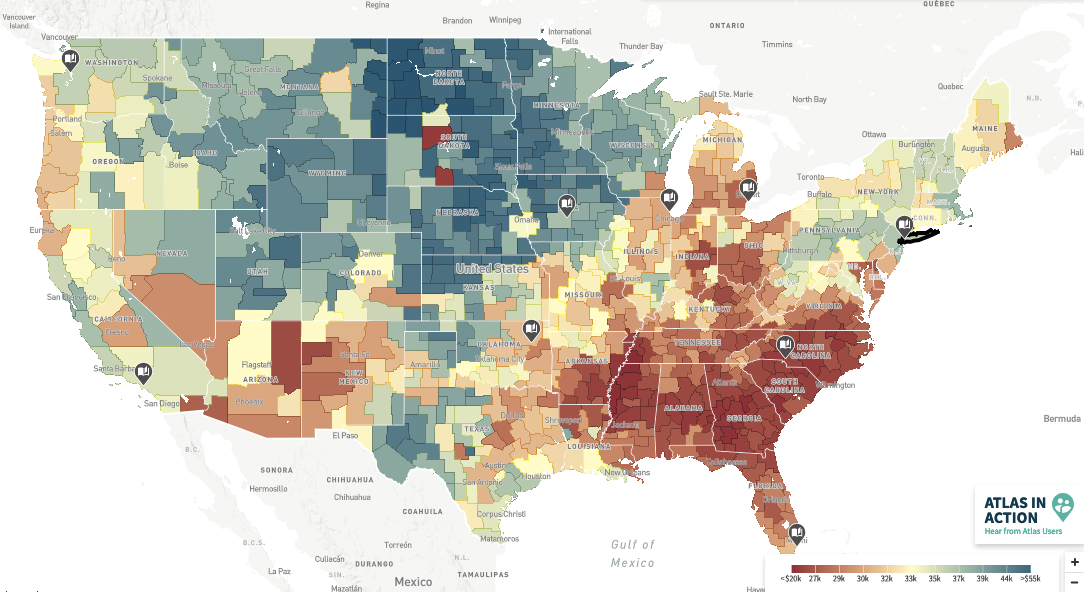HUNTSVILLE, Ala. — A widening income gap and sagging social mobility have left dents in the American dream. But the belief that anyone with enough gumption and grit can clamber to the top remains central to the nation’s self-image.
And that could complicate Democratic efforts to frame the 2020 presidential election as a referendum on a broken economic system.
Americans, who tend to link rewards to individual effort, routinely overestimate the ease of moving up the income ranks, while Europeans — citing an unfair system, inherited wealth and sticky social classes — consistently underestimate it, surveys have found.
For moving from the bottom of the income ladder to the top, the South offers the worst odds in the United States. But it’s also the region where people are most optimistic about the prospects.
. . . .
Whether people think opportunity is equally available, though, often depends on their political viewpoint.
Liberals are generally more pessimistic than conservatives about the ability of poorer Americans to hoist themselves up economically, and they are more inclined to support government programs meant to ease the route. Tell them that social mobility from one generation to the next is less than they thought, and their support for public assistance increases.
For conservatives, none of that is true. Learning that they have overestimated the odds does not increase their support for government intervention, but causes it to drop even further.
“We didn’t expect this very stark polarization,” Ms. Stantcheva said. It is not that conservatives do not consider flagging social mobility to be a serious issue, but rather that they think government will make the problem worse.
The political split may also help explain the South’s particular optimism. The region has leaned conservative for decades. Alabama, like most of its neighbors, has not voted for a Democrat in a presidential election since 1976.
Ms. Winters is one of those dedicated Republicans. Her husband described himself as a lifelong Democrat.
Mr. Winters figured the odds that poor people could work their way up were slim. For him, that is evidence that the government needs to do more.
For Ms. Winters, hearing that the odds of moving up the income ladder are actually much lower than she had guessed did not change her opinion that government assistance was wasteful.
“There are too many handouts to collect from the government,” Ms. Winters said, “instead of going out there and trying to work, and putting your money in a savings account.”




